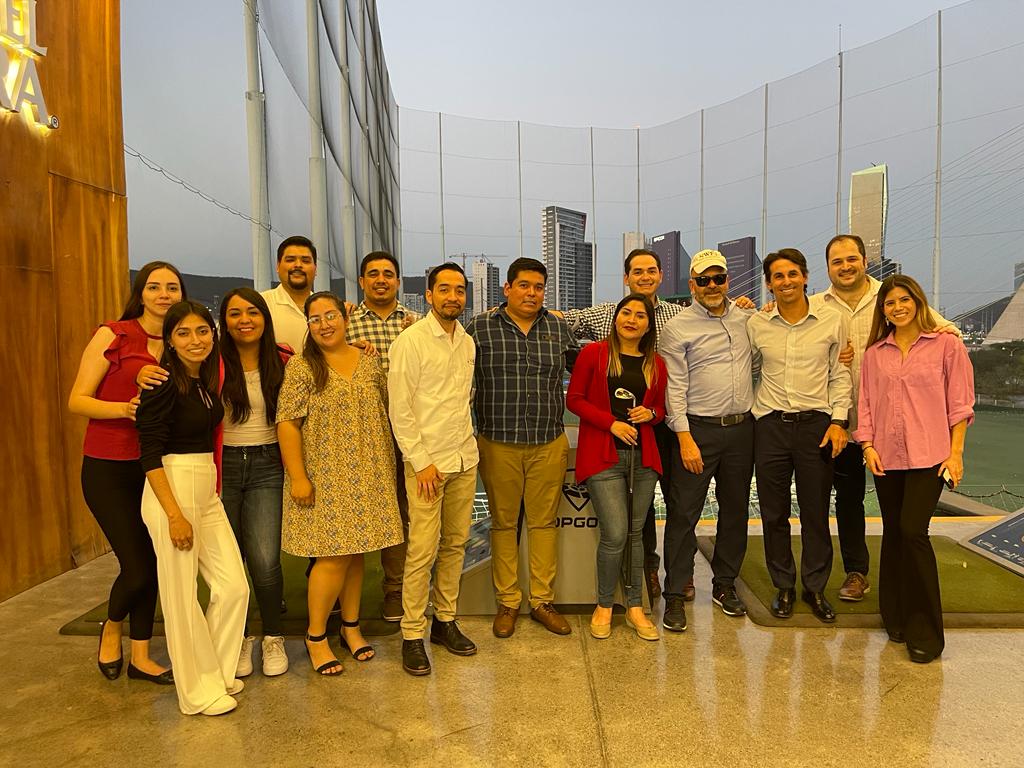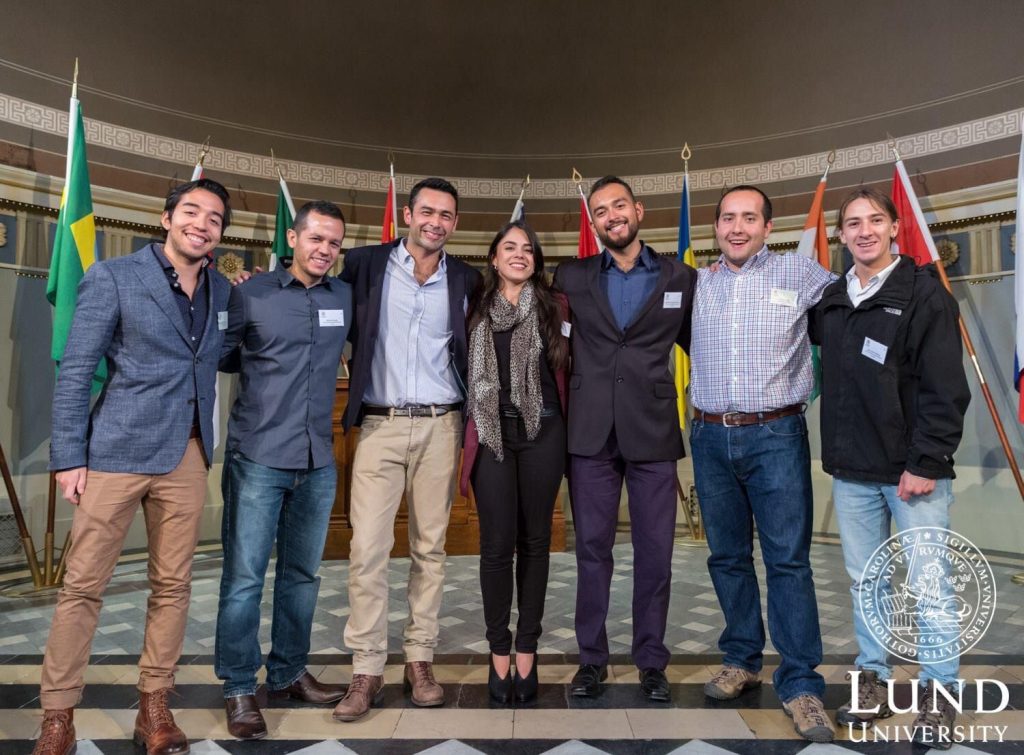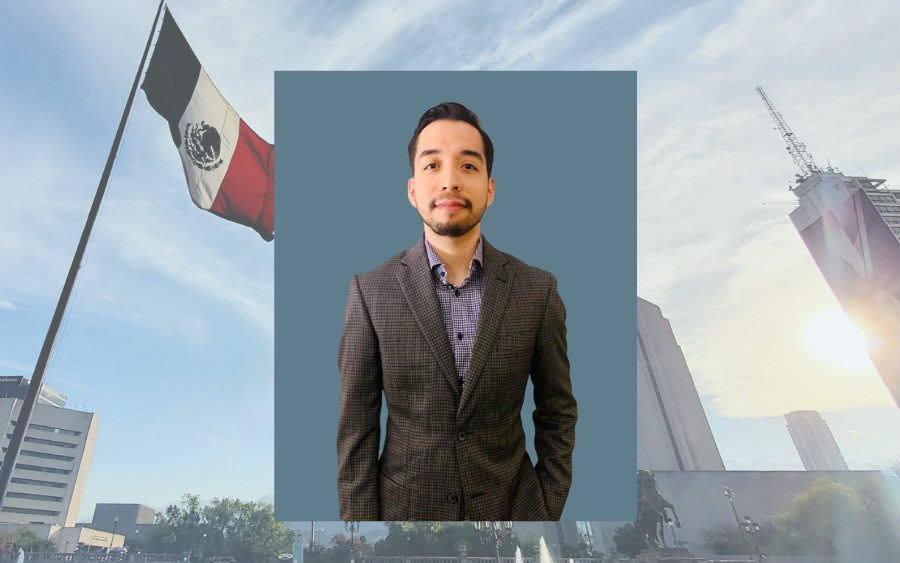Hi Daniel Esparza! You graduated from the master’s degree programme in Service Management, with a specialization in Logistics, in 2016. What have you been up to since your graduation?
After graduating in 2016, I moved back to Mexico. Since I didn’t have a specific place to come back, I decided to venture and move to Merida, Mexico, where my best friend was living at the moment. He offered me to stay with him until I could get a place of my own. During my stay in Merida, I joined a startup called Playnux within the gaming industry. The aim of Playnux was to introduce the first Mexican video game console into the market. I worked there as the COO for about six months, after that time I decided to step down and search for a different challenge.
Next, I went to live for a couple of months to Oaxaca, Mexico, where my parents live. During that time, I was able to get a couple of job offers in Monterrey, Mexico (the second largest city in Mexico) and where I had lived most of my life. In 2017, I started working as an insurance sales manager within a New York Life consultancy called FISE. I worked there for about a year, where my main task was to teach new sales insurance agents the products and basic selling techniques needed to become a sales insurance professional. After a year I received a job offering to work as a Product Operations Specialist at Grainger Mexico. My time there consisted of working hand in hand with our network of suppliers. Two years later I got another job offering from my current employer (New World Fuel, NWF). At NWF, I function as a Logistics/Key account specialist in charge of several clients within the Fuel commercialization industry
What does a normal workday look like for you?
A normal workday starts by reviewing messages that were left unread the day before, if anything is urgent, then address them. After that it’s time to start the to-do list you planned for the day. The to-do list usually consists in making sure with the Ops team that everything is running smoothly, and deliveries will be made on time. We tend to have a team meeting in the mornings to plan and oversee the day/week.
From midday, we make sure the deliveries are made as planned and make sure that all the documentation is delivered so our finance team can collect and pay for everything accordingly. In the afternoons, the international fuel market closes, and we prepare the prices we are going to offer to our clients for the next day. Fuel prices change every day according to the market and other factors. We send all the prices to our customers, and we make sure the deliveries for the next day have all the correct information and we close any spot sales that could have happened during the day.

What do you think are the biggest future challenges in your industry?
I see three main challenges within my industry (fuel commercialization in Mexico). The first would be the black market (also known as “huachicol”), currently the illegal sale of fuels in Mexico is a big problem within the industry because we cannot compete with those prices and the transportation companies having such low profit margins are tempted to reduce their costs as much as possible. This problem has been reduced and is expected to be controlled if not eliminated, through government policies and regulations.
The second biggest problem is the present “fear” that the Mexican government might revert the energetic reform, to make PEMEX (state owned company) the only authorized fuel distributor in Mexico again. Which would make it impossible for private companies like ours to purchase imported fuel/diesel and commercialize it within Mexico. In my opinion, this is not likely to happen, but it is always a possibility.
Finally, in the long run fossil fuels are going to stop being used all around the world or limited to very small quantities, so a shift toward green energies/fuels will have to be a must.
What are the takeaways from your studies at Lund University that you found most useful in your current career in the logistics industry?
I think Sweden and Lund University have a very unique way of doing things from any other place I have visited or studied in. The no-hierarchy approach during lectures and the grading system are a few to mention. I think working or studying with people with different cultures and backgrounds is one of the most enriching experiences a human being can have. It helps you grow, think, understand, and implement new ideas or processes that you could never have thought of before because of your own limitations given by your culture, country, family, etc. Hence, learning to work with multidisciplinary and multicultural groups is my biggest takeaway of this amazing experience I was able to be part of.

You studied for two years at the Lund University Campus Helsingborg, what are your favourite places and things about Helsingborg?
There are many places in Helsingborg that are truly special, but my favourite routine was to run from my dorm (furutorpsgatan) towards the campus, run through the harbour, then the beach and end up in the forest. For me that’s the most magical and special route to run. Kärnan and Sofiero are also two of my favourite places in Helsingborg. Also, walking around Sofiero in autumn is a unique experience. In general, Helsingborg is a very special city, it has a lot of old buildings and many different restaurants and coffee shops where you can experience the Swedish culinary and the famous Fika. I would describe it as a very cozy town to live in, there are many things to do there. If you are an outdoor person, it is a perfect place to live in.

